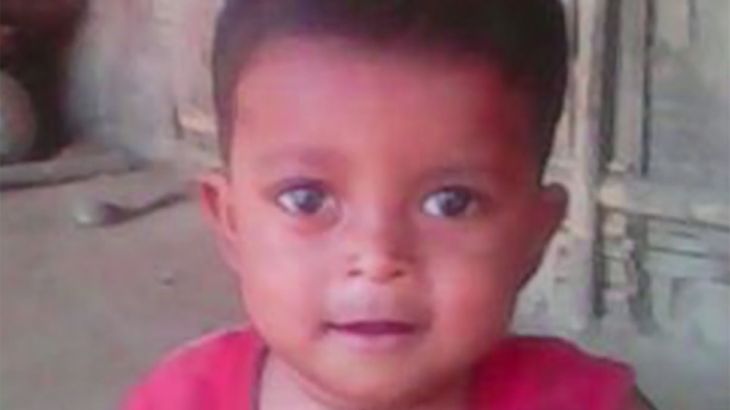Rohingya survivor: The army threw my baby into a fire
A Rohingya mother describes the night her infant son was brutally murdered by the Myanmar army.

Cox’s Bazar, Bangladesh – Sitting on the dusty floor of a ramshackle tent in Kutupalong – one of Bangladesh’s largest Rohingya refugee camps – Rajuma struggles to contain her grief as she describes the night her baby son was brutally murdered.
With pain etched on her face, she recounts in detail the day Myanmar’s army attacked Tula Tuli, her isolated village in northern Rakhine state.
Keep reading
list of 4 itemsConflict, climate, corruption drive Southeast Asia people trafficking: UN
Bodies of three Rohingya found as Indonesia ends rescue for capsized boat
How is renewed violence in Myanmar affecting the Rohingya?
“My baby was in my lap when the soldiers hit me,” she tells Al Jazeera’s Mohammed Jamjoom, her voice cracking with emotion.
“He fell out of my arms. Then they pulled me closer to the wall, and I could hear that he was crying. Then after a few minutes, I could hear that they were hitting him too.”
|
|
Sadiq was a happy, playful one-and-a-half-year-old baby boy – a child Rajuma still cannot believe is gone.
After ripping him out of her arms, Rajuma says Myanmar soldiers hurled Sadiq into a fire.
She was then gang raped.
“I feel like I’m burning on the inside,” Rajuma says, before breaking down and crying out for her dead mother.
Her parents, two of her sisters and her younger brother were also killed. Her husband, Mohammed Rafiq, was able to escape and survived the attack.
Several Rohingya have shared similar accounts, describing how women and girls were raped, tortured and forced to endure acts of humiliation at the hands of Myanmar soldiers.
Myanmar has denied allegations of ethnic cleansing, saying the military offensive was a “clearance operation” to flush out Rohingya fighters who had staged attacks on border posts in August. It has also refused to allow international observers to investigate.
READ MORE: The Rohingya crisis through the eyes of a refugee
Since August 25, the Myanmar army has waged a brutal military campaign in northern Rakhine state against the Rohingya – a Muslim-majority ethnic group to whom the Myanmar government has denied citizenship and basic rights.
More than 500,000 Rohingya have fled Myanmar, most arriving in Bangladesh by foot or by boat, with aid agencies struggling to cope with the influx.
Support for mental health and psychological care is in short supply, raising fears that the Rohingya could be left with life-long mental – and even physical – damage.
“Sometimes [Rajuma] says her head feels like it’s twisting and that she can’t tolerate it,” Rafiq tells Al Jazeera. “Sometimes she looks at the photos of our baby, and she screams and cries.
“Every single day she cries.”